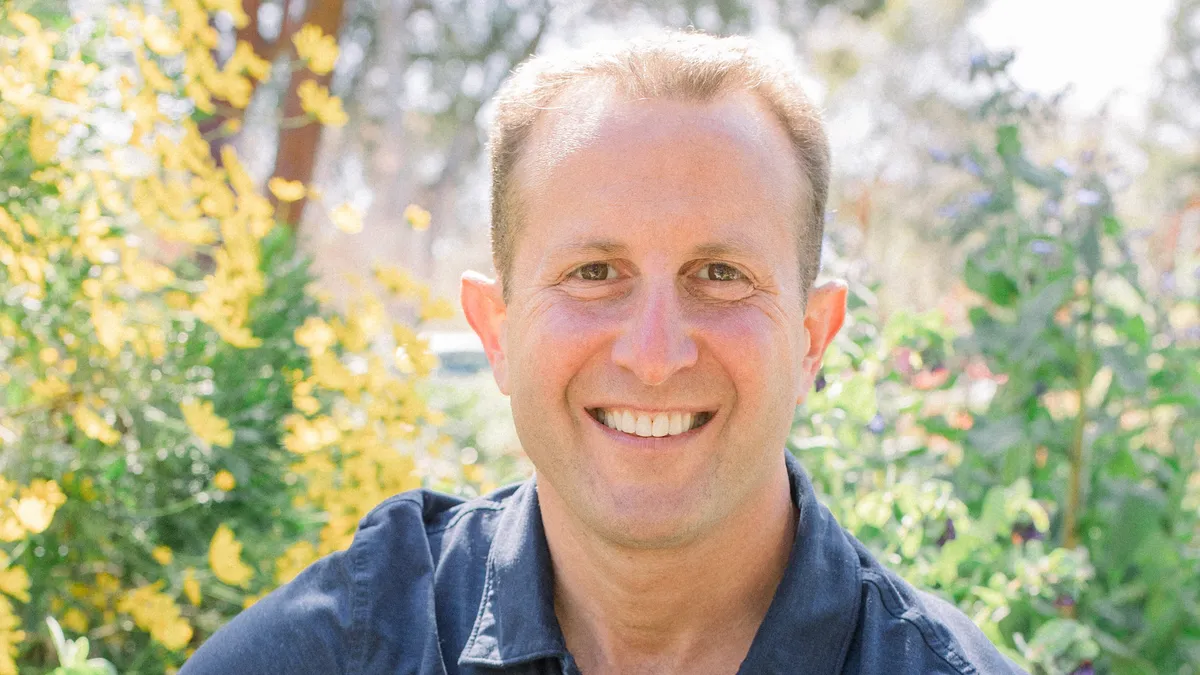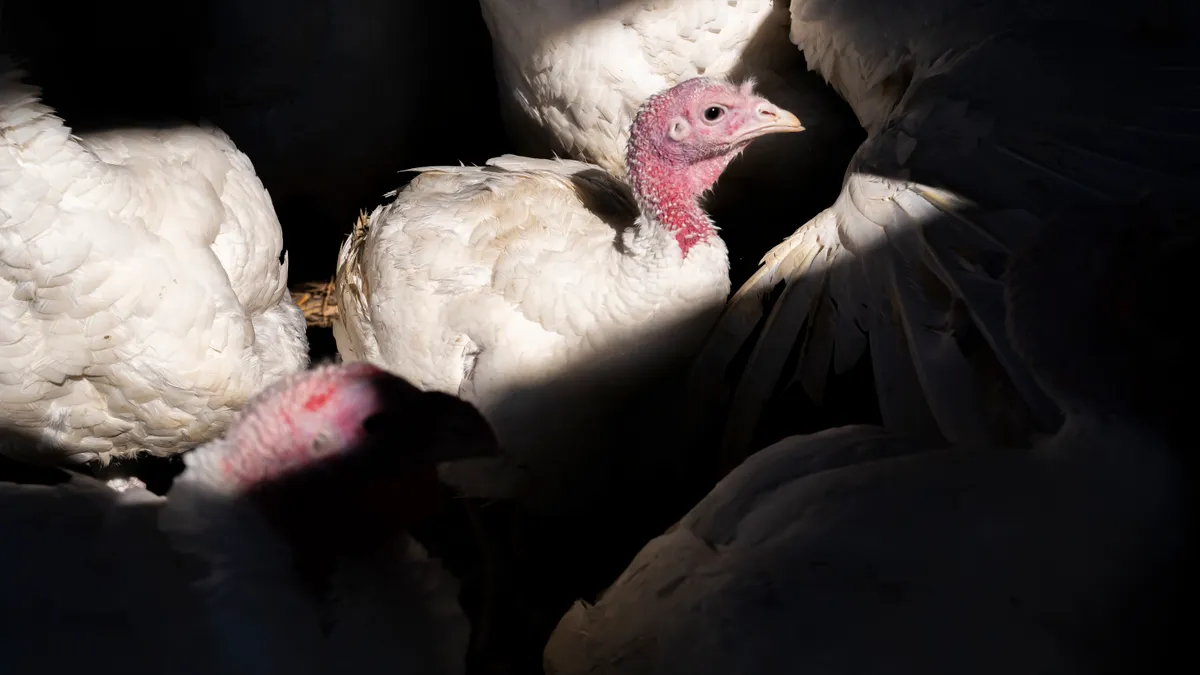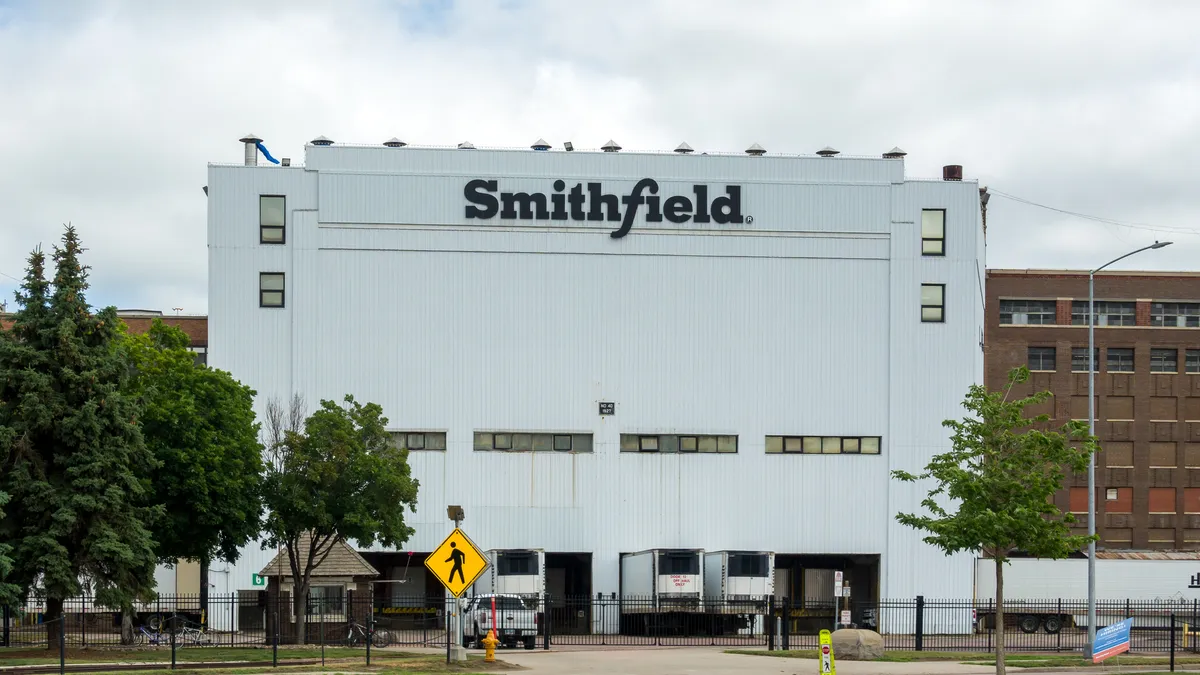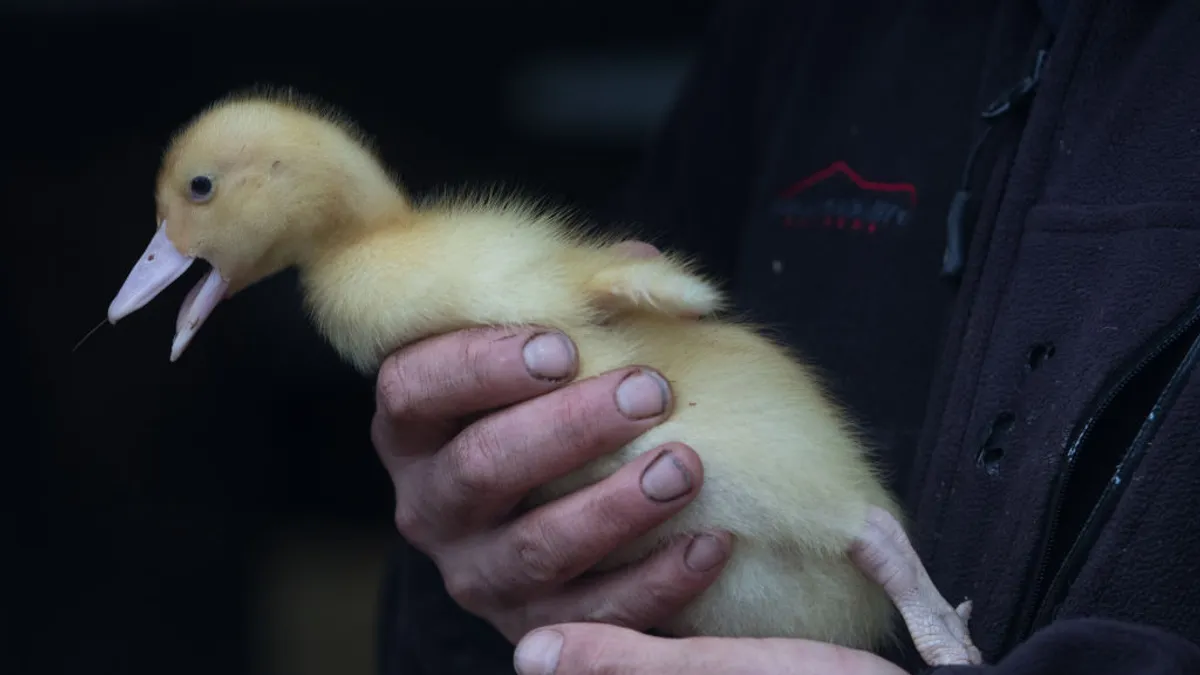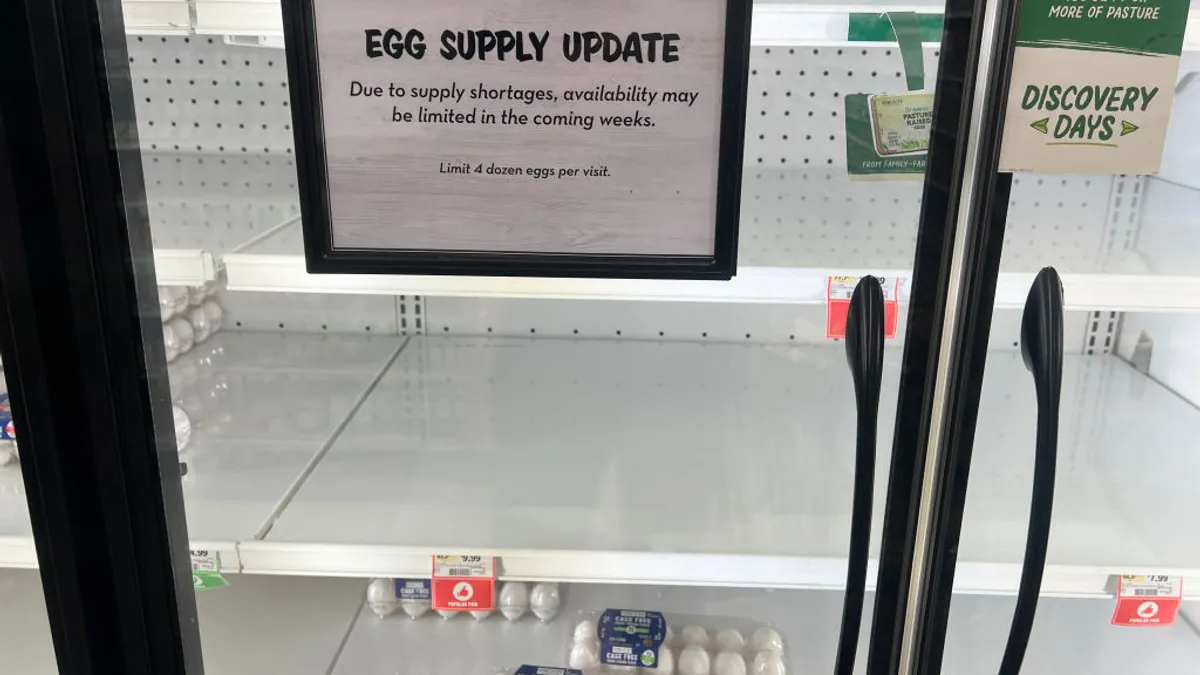This is part of a new Q&A series at sister publication Food Dive with iconoclasts challenging the status quo in the food industry. This interview has been edited for clarity and brevity.
Name: Paul Shapiro
Where do you live? Sacramento, CA
Occupation: CEO of Better Meat
When Paul Shapiro attended a science camp in Colorado as a child, he was initially struck by the intimate nature of the wildlife around him. What bewildered Shapiro the most, was how humans were passively able to destroy animals’ sense of well-being, and they were unable to do the same to people in return.
From then on out, Shapiro decided to devote his life to making a change when it came to animal cruelty and overall animal welfare. In high school, he started an animal protection club that turned into a national organization, which he ran for a decade. He went on to work as a lobbyist. Shapiro realized quickly that information alone was not enough to induce change in the way that animals were treated. Like many other things in society, he knew technology would be key to shift behaviors.
Better Meat was born when Shapiro, after penning the national bestseller “Clean Meat: How Growing Meat Without Animals Will Revolutionize Dinner and the World,” decided he could either continue writing about people in the food technology industry, or become one of them. He chose the latter.
With co-founders Joanna Bromley and Adam Lee, Beyond Meat began its mission to revolutionize the industry by creating a new and better way to make meat.
FOOD DIVE: What was your first job?
Selling roses on the side of the road. I would get the roses from a big wholesale warehouse and they came in bundles of 25. I would break them into two dozens, and there were always 25 in case there is one defect, but I quickly learned that people were willing to pay a lot more per rose when you sell one rose than if you’re selling a dozen roses. This was back in the early 90s. I would sell a dozen roses, for like $7, but I could sell one rose for like $2.
FOOD DIVE: What inspired you to focus on your current work?
I had a passion for animals from a very young age. When I was in fifth grade, my parents sent me away to science camp in Colorado, and I was watching the prairie dogs and learning that they had their own colonies. They had their own relationships, language and words. It was like an entire city. I was so fascinated by them, and I learned that the biggest threat to them was human aggression, which really distressed me. I started volunteering at various animal protection organizations in Maryland.
FOOD DIVE: What is the biggest change you have seen while working your current role?
My views in general have changed the most. I used to think that if we simply informed people of how animals were routinely mistreated that would induce change, but I then realized that is not sufficient.
If you look at the ways in which we have stopped using animals in the past, it’s usually been through technology. We didn’t stop whipping horses because we cared about horses, we stopped because technology allowed for the invention of cars, and there was a better way to transport ourselves.
We try to persuade people to drive less and walk more, but really, people want to drive, so we need to make cars that don’t rely on fossil fuels. And similarly, people want to eat meat. It would be wonderful if people wanted to eat lentil soup and rice and bean burritos and quinoa salad; however, most people want to eat meat. And so I am devoting myself to trying to advance technologies that can allow humanity to continue enjoying the meat experience while using far fewer animals.
FOOD DIVE: What was harder than you thought it would be? What was easier?
I’ll start with the harder — when Joanna and I started the company in 2018, alternative protein was on the upswing. Beyond Meat and Impossible were really taking off, and there was a lot of investor interest in the space and raising capital was not such a Herculean feat. It was never easy, but today, of course, the opposite is true, and raising capital for alternative protein is substantially more difficult than it was two or three years ago.
On the other side of your question, when we started we had three people. It was Joanna Bromley, myself and Adam Lee. And we ended up getting a deal with Perdue Farms, one of the biggest meat companies on the planet, selling them ingredients for their chicken nuggets, which four years later, they still sell today. This is one of the things I was most proud of, despite being a three-person startup that didn’t even have any real presence in the market. We were able to enter a deal with Perdue Farms that has been quite successful and continues to this day.
FOOD DIVE: What is a misconception that people have about you when they first meet you?
I think that because I am vegan, and I’ve been a vegan for 30 years, there can sometimes be a perception of vegans that they have an all-or-nothing mentality. When in reality, what I’m seeking to do is to move the ball forward. That’s why we sell to Perdue Farms for their hybrid chicken nuggets that are 50% plant-based and 50% chicken. I’m a big believer in hybrids because I think they can help to really make a dent in the issue and move forward on food sustainability as well. There’s a big difference between merely being right, and being right while being effective and those are not the same.
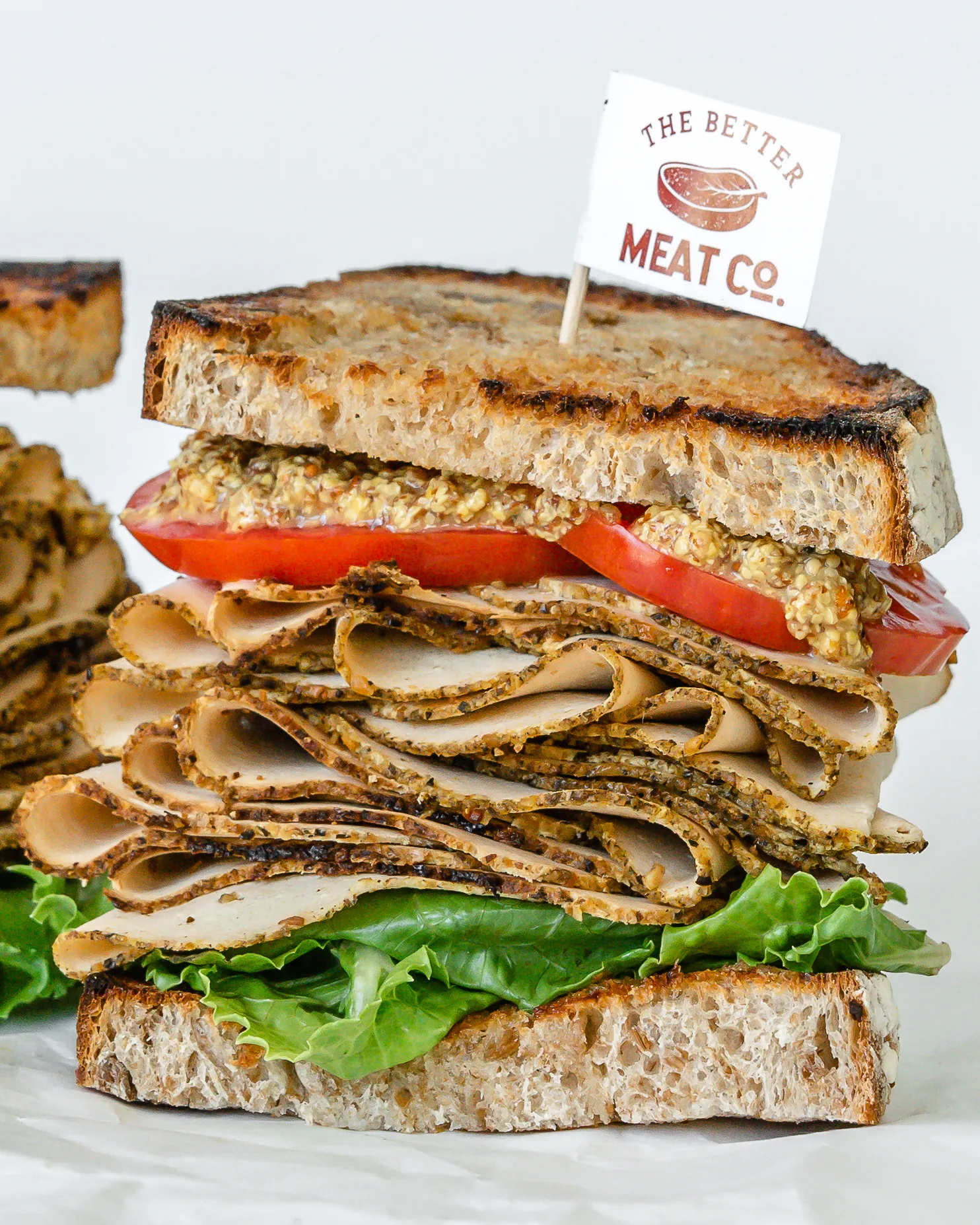
FOOD DIVE: What do you think will be the biggest change in the industry in ten years?
I don’t want to make predictions, but I’ll tell you what I hope. What I hope is that ten years from now, humanity will be less reliant on animals for food than it is today. If you look at the trajectory of plant-based milk, it went from being around here and there, to now being around 15% of the total fluid milk market. That’s a really, really big change. We’ve had a proliferation of almond milk, soy milk, coconut milk, goat’s milk, and so on. And those have actually made a dent in fluid milk consumption.
Alternative meats today are still around 1% of the total meat market in the United States and obviously, far less globally. My hope is that ten years from now that will be a substantially different number, substantially bigger, and that alternative meats might not be considered so alternative anymore, and they will be a double digit part of the total meat industry.
FOOD DIVE: What do you wish someone would have told you about your current role when you started?
The first would be to focus on raising capital whenever you can. There is an hors d’oeuvres theory of funding — it says when you’re at a cocktail party and people are carrying out platters of food, the best time to take the food is when they pass it around. You think, ‘oh well I’m sure there are more stuffed mushrooms in the back.’ Well, you know what? There might not. I think the same is so with fundraising and in the past environment, when it was much less difficult to raise capital than today, I think entrepreneurs tended to be more selective. But you basically want to raise more money than you think that you need.
FOOD DIVE: What would be the foods of your last meal?
I've always fantasized about having a mango bar. Where all these different species of mangoes are in front of you, and you can test the different mangoes. There’s so many different strains of mangoes out there, but we only get to see one or two of them from supermarkets, and I would really love to do a tasting experience of a variety of different brands.
I would also have the mycoprotein that the Better Meat team grows at our facility here in Sacramento. It’s so delicious, so I would probably have a wrap that includes a very thick amount of the mycoprotein turkey slices that we make, and if it’s my last meal, I’d want to share it with my wife Toni and my dog Eddie. Then I think I could die pretty happy.



